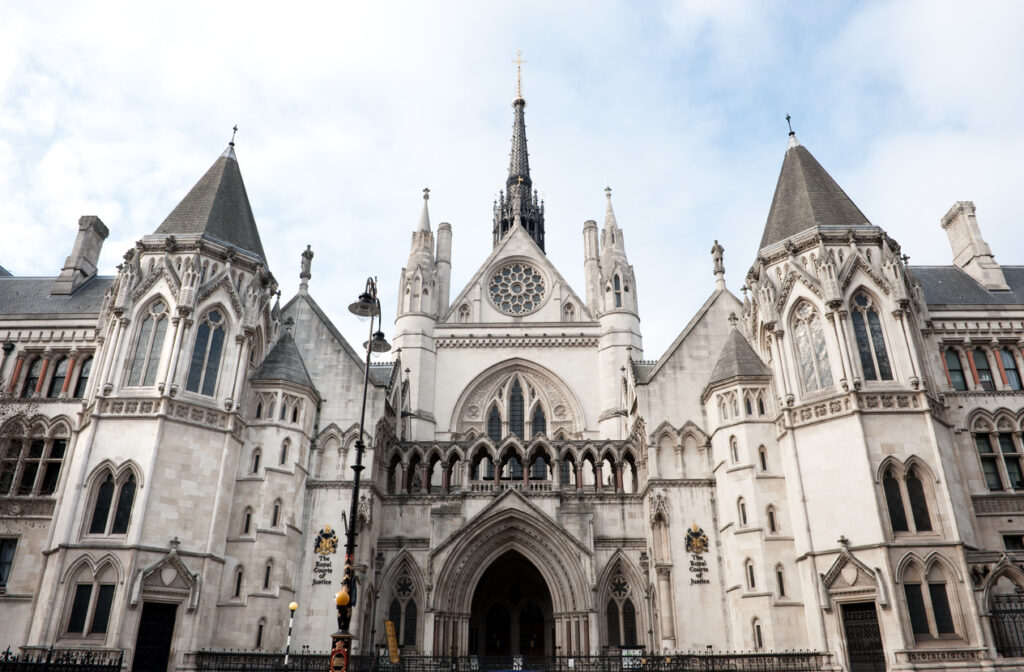How property owners and developers can resolve land disputes
Resolving land disputes is crucial for property owners and developers to ensure the smooth progression of projects and protection of investments. Land disputes can arise from various issues, including boundary disagreements, easement conflicts, zoning challenges, or title defects. For property owners and developers, dealing with these disputes effectively requires a strategic approach that combines legal expertise with practical solutions.
The first step in resolving land disputes is to clearly identify and understand the nature of the conflict. This often involves a detailed review of property deeds, surveys, and other relevant documentation. For boundary disputes, accurate land surveys are essential to establish precise property lines and clarify ownership. In cases of easement conflicts, reviewing the terms of existing agreements or easements and understanding the legal rights involved is critical.
Effective resolution also requires open communication and negotiation. Engaging in direct dialogue with the opposing party can sometimes lead to amicable solutions without the need for formal legal proceedings. Mediation and arbitration are alternative methods that can facilitate compromise and avoid the cost and time associated with litigation.
When disputes escalate or cannot be resolved through negotiation, legal intervention may be necessary. In such cases, property owners and developers should seek experienced legal advice to guide them through the process. We can help with preparing and presenting evidence, representing clients in court, and ensuring compliance with relevant laws and regulations.
Ultimately, resolving land disputes effectively involves a combination of clear documentation, proactive negotiation, and, when necessary, robust legal representation. By addressing disputes with a comprehensive strategy, property owners and developers can protect their interests, minimize disruptions, and ensure the successful continuation of their projects.

James Fownes
Partner
Specialising in Land Disputes law
Boundary disputes
We can assist with boundary disputes by providing expert legal advice and representation to protect your property rights. Our team will conduct thorough research, including land surveys and title examinations, to clarify property boundaries and identify any discrepancies. We work to resolve disputes through negotiation, mediation, or, if necessary, litigation.
Our goal is to achieve a fair and amicable resolution, minimising stress and potential costs. With our extensive experience in property law, we ensure your interests are safeguarded throughout the process.
Easement and rights of way disputes
We offer comprehensive support in resolving easement disputes, ensuring your rights and property access are protected. Our experienced team will carefully analyse easement agreements, land titles, and relevant documentation to determine the validity and scope of the easement in question.
We always try to resolve conflicts amicably through negotiation and mediation, but if needed, we are prepared to represent you in court. Whether the issue involves access, maintenance responsibilities, or potential misuse, we focus on achieving the right outcome.
Adverse possession claims
We provide expert guidance in handling adverse possession disputes, helping you protect your property rights against claims by others. Our legal team will conduct a thorough investigation of the claimant’s use of the property, examining whether it meets the legal requirements for adverse possession, such as continuous, open, and hostile use over a statutory period.
We work to challenge these claims by gathering evidence, negotiating with the opposing party, or representing you in court if necessary. Our goal is to safeguard your ownership and resolve the dispute efficiently, ensuring your property remains secure.
Title disputes
We assist in resolving title disputes by providing legal analysis and representation to clarify and secure your property ownership. Our team conducts thorough title searches, reviews property records, and identifies any discrepancies or competing claims. We work to resolve issues such as unclear ownership, liens, or title defects through negotiation, settlement, or legal action if required.
Zoning and use disputes
The team can advise with zoning and land use disputes to ensure compliance with local regulations and protect your property interests. Our team will review zoning laws, land use plans, and requirements to address any conflicts or violations. We help you through the regulatory process, whether you need to challenge zoning decisions, seek variances, or address non-compliance issues.
Trespassing and encroachment disputes
Our skilled team can provide legal support for trespassing and encroachment disputes to safeguard your property rights. Our team will investigate the nature and extent of the trespass or encroachment, gather evidence, and assess the impact on your property. We help you through the legal process to address unauthorised use or encroachments, whether through negotiation, cease-and-desist letters, or litigation. Our goal is to secure a resolution that restores your property boundaries and prevents future issues.
Environmental and regulatory disputes
The team can provide expert assistance with environmental and regulatory disputes, ensuring compliance and protecting your interests. Our team will analyse regulatory requirements and environmental laws related to your matter, addressing issues such as compliance, contamination, and land use. We assist in negotiating with regulatory agencies, challenging adverse decisions, and representing you in administrative or court proceedings. Whether you face environmental contradictions or regulatory conflicts, our aim is to achieve a favourable resolution while minimising legal risks and ensuring adherence to environmental standards
Property development disputes
The team offer bespoke support for resolving property development disputes, ensuring that your projects proceed smoothly. Our team will review development agreements, contract terms, and regulatory requirements to identify and address conflicts. We assist in negotiating with stakeholders, managing disputes with contractors, and navigating regulatory challenges. Whether you face issues with project delays, compliance, or contractual obligations, we provide strategic guidance and representation to protect your interests.
Why choose Shakespeare Martineau?
- Our team offer prompt and professional service, whether through in-person meetings or virtual consultations, you can trust that our advice will be timely and professional, helping you feel confident in your legal matters, every step of the way
- We provide advice that is not only pragmatic and quick but also easy to understand. Every lawyer in our firm is approachable, helpful, and committed to offering reliable legal solutions, making the process straightforward for clients
- Our clear and easily understandable approach has kept clients coming back for years, knowing they can depend on us for comprehensive legal support time and time again
- Our clients regularly highlight the exceptional expertise and professionalism of our lawyers. Our team cares deeply about every aspect of your case, ensuring you receive a thorough and attentive service


Strategic solutions for land disputes
With a Tier 3 ranking in the Legal 500 for Property Litigation, we have a record of accomplishment of successfully resolving complex land disputes. Our strategic approach combines legal expertise with practical and commercial solutions, ensuring favourable outcomes for our clients in high-stakes cases.
Mastering complex land disputes
Our comprehensive experience in handling complex land dispute cases sets us apart. We possess in-depth knowledge of property law and land rights, allowing us to deal with most challenging disputes protecting our clients’ interests at all times.
Uncovering solutions to property disputes
Our team is highly experienced in interpreting historical documents and land surveys, critical for resolving boundary and title disputes. This expertise enables us to uncover essential details that others might miss, ensuring a thorough and accurate resolution to your property issues
Strategic solutions for property disputes
The team delivers a balanced approach to dispute resolution, using both negotiation and litigation to achieve the best results. Our strategic planning, bespoken to each matter and client, ensures that we pursue the most effective and efficient path to resolving your property disputes.
Related services
Meet our Land Disputes team
Building a responsible business
Our commitment to sustainability and social impact
We are an accredited B Corporation that is committed to driving positive change in our communities, minimising our impact on the environment, and ensuring an all inclusive diverse and supportive culture for our people.
Wherever you are on your journey, our Land Disputes specialists are here to answer any questions you might have
If you’d like to speak to a member of our team, please fill out the enquiry form. We will aim to reply to your query within 2 hours
Need to talk to someone sooner? You can call use at the number below
Call Us: 0330 024 0333
Land Disputes FAQs
The most common types of land disputes typically involve issues such as:
Easement Disputes – Easements grant one party the right to use another’s property for a specific purpose, such as access to a road or utility lines. Disagreements can occur over the scope, maintenance, or existence of these easements.
Adverse Possession Claims – These occurs when someone occupies land they do not legally own for a certain period, potentially leading to ownership claims if certain legal requirements are met.
Title Disputes – These involve disagreements over the legal ownership of a piece of land, often due to unclear or conflicting deeds, missing documentation, or fraud.
Boundary Disputes – These arise when property owners disagree over the exact location of their property boundaries. This can happen due to unclear property descriptions, historical errors, or encroachments or where a structure or feature extends beyond a legal boundary.
Land Use Disputes – Conflicts can arise when property owners, developers, or neighbours disagree over the permitted use of land whether pursuant to covenants or statute.
Property Access Disputes -These disputes occur when property owners argue over rights of access to their land, which may involve shared driveways, public paths, or private roads.
These disputes can be complex and often require legal intervention to resolve
Boundary disputes are typically resolved through a combination of negotiation, legal processes, and sometimes court intervention. Here are the common steps involved:
Survey and Documentation Review: The first step in resolving a boundary dispute usually involves hiring a professional land surveyor to assess the property and determine the exact boundaries according to deeds and historical records. This helps clarify where the property lines are supposed to be.
Negotiation: Often, neighbours can resolve disputes through direct negotiation after reviewing the survey results. This may involve agreeing to a boundary line, exchanging land, or creating an easement.
Mediation or Arbitration: If direct negotiations fail, the parties might opt for mediation or arbitration, where a neutral third party helps facilitate a resolution without going to court. This process can be faster and less expensive than litigation.
Quiet Title Action: In cases where ownership of the land is unclear or disputed, a quiet title action may be filed in court. This legal process seeks to “quiet” any challenges or claims to the title, resulting in a clear determination of ownership and boundary lines.
Court Litigation: If all other methods fail, the dispute may be taken to court. A judge will review all the evidence, including surveys, deeds, and witness testimonies, to make a final determination about the boundary.
Adverse Possession: In some cases, if one party has occupied the disputed land for a long period without challenge, they may claim ownership through adverse possession. This requires proving continuous, open, and hostile use of the land for a legally defined period.
Each of these methods aims to provide a clear and legally binding resolution to the boundary dispute, with the goal of avoiding further conflict
Adverse possession is a legal test that allows a person to claim ownership of land under certain conditions, even if they do not hold the legal title to it. This typically occurs when someone occupies and uses land that legally belongs to another person for a continuous and extended period, without the owner’s permission.
Key Elements of Adverse Possession
For a successful adverse possession claim, the following conditions must be met:
Continuous Use: The person claiming the land must use it continuously for a period defined by state law, which can range from 5 to 30 years, in the UK.
Open and Notorious: The use of the land must be visible and obvious to anyone, including the legal owner. This means the occupant is not hiding their use of the land.
Exclusive Use: The possessor must be the only party using the land, not sharing it with the legal owner or others.
Hostile or Adverse: The possession must be without the legal owner’s permission, meaning it is done against the owner’s rights.
Actual Possession: The person must physically occupy the land, such as building a structure, farming, or otherwise using it in a manner typical of an owner.
If all the above conditions for adverse possession are met, the person occupying the land can file a legal action to obtain title to the property. This process typically involves a “quiet title” action, where a court formally recognises the claimant as the legal owner of the property.
Adverse possession can result in a significant shift in land ownership, allowing someone to gain legal title to property without purchasing it, provided the original owner does not take legal action to remove the occupier within the statutory period. This should encourage landowners to monitor and protect their property rights actively.
Easements and rights of way can significantly impact property rights by granting others certain uses of a property, even if they do not own it. These legal rights can affect how property owners use, enjoy, and manage their land.
The Impact on Property Rights
Limitations on Use – Easements and rights of way can restrict how property owners use their land. For example, they might not be able to build on or alter the land where the easement is located.
Property Value – The presence of an easement can affect property values, sometimes lowering it due to the limitations imposed. However, in some cases, easements like access roads can increase a property’s value by providing necessary utilities or access.
Maintenance Responsibilities – Depending on the easement terms, either the property owner or the easement holder may be responsible for maintaining the easement area, such as repairing a shared driveway.
Disputes – Disagreements can arise over the scope of the easement, its proper use, or maintenance responsibilities. Resolving these disputes may require legal intervention.
Overall, while easements and rights of way are designed to balance the interests of different parties, they can complicate property ownership and require careful management to avoid conflicts.
Land surveys play a key role in resolving land disputes by providing accurate, authoritative information about property boundaries and land features. Here’s how they contribute:
Establishing Accurate Boundaries
Land surveys define the exact boundaries of a property based on legal descriptions, historical records, and physical markers. When property lines are unclear or disputed, a survey can clarify the precise limits of ownership, helping to resolve disagreements over where one property ends and another begins. This is crucial in disputes involving encroachments, such as when a fence, building, or driveway extends onto a neighbour’s land
Providing Legal Evidence
The results of a land survey serve as legal documentation that can be used in court if the dispute escalates. The surveyor’s report, which includes detailed maps and descriptions, is often considered authoritative evidence regarding property boundaries. Courts rely heavily on these surveys to make informed decisions in boundary disputes, adverse possession claims, or easement issues
Facilitating Negotiation and Mediation
Land surveys often help disputing parties reach a resolution without the need for litigation. By providing clear, objective data on property boundaries, surveys can defuse conflicts and promote amicable settlements. When both parties have access to the same information, they are more likely to agree on a solution, whether through direct negotiation or mediation (
Preventing Future Disputes
Regularly updated land surveys can prevent future disputes by ensuring that property owners and prospective buyers have a clear understanding of the exact boundaries. This is especially important during property transactions, construction projects, or when making improvements near property lines
Landowners can protect themselves from potential land disputes by ensuring clear and accurate property boundaries through professional surveys, maintaining up-to-date and properly recorded deeds, and understanding any easements or rights of way affecting their land.
Regularly reviewing and understanding local zoning and use laws and regulations can also help prevent conflicts. Additionally, landowners should address any encroachments or disputes early through open communication or legal advice to avoid escalation.
When a land dispute arises, legal options include negotiation between the parties to reach a mutual agreement, mediation or arbitration as alternative dispute resolution methods, and going to court to seek a ruling on the matter. Depending on the dispute, landowners may also pursue actions such as quiet title lawsuits, boundary adjustments, or seeking injunctive relief to prevent further encroachments or violations.
The time it takes to resolve a land dispute can vary widely, typically ranging from a few months to several years. The duration depends on factors such as the complexity of the dispute, the willingness of parties to negotiate, and whether the dispute is resolved through mediation or requires litigation. Simple disputes may be resolved quickly, while complex cases involving court proceedings can take significantly longer.














